Auvo - Levelling Up Organisation Identity for eIDAS 2.0
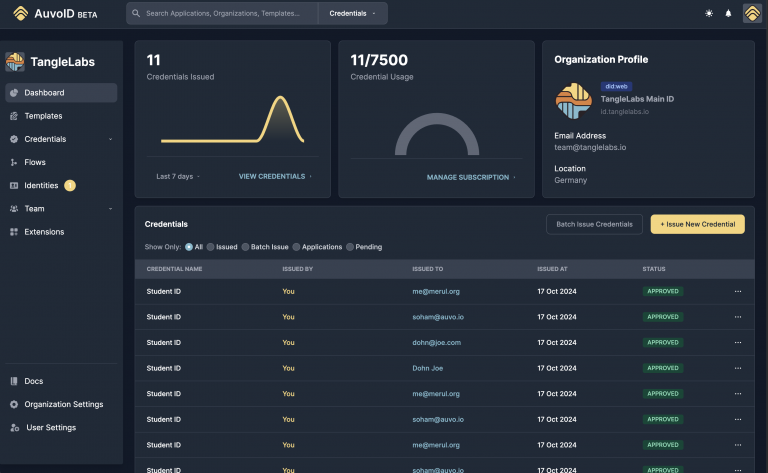
Since launching in Q3 2024, Auvo is becoming a leading example of how the future of Organization Identity and Verifiable Data management will be shaped. The latest update brings the biggest expansion of the platform and the versatility of its tools that can empower businesses, institutions, and organisations with extensive no-code / low-code services for the streamlined management of identities, credential templates, and user flows – putting complex eIDAS 2.0 technology in the hands of everyone.
What is Auvo?
The Auvo platform allows any business or organisation the ability to seamlessly setup and manage their organisation identity, so they can efficiently sign and manage verifiable data in the form of verifiable credentials. Organisations can manage their teams and create data templates like a diploma or a trade document, that can be reused and signed, as verifiable data that can be issued to other individuals or organisations, for established trust and proof of authenticity in their creation and origin.
Auvo is built to facilitate ease of adoption towards the new eIDAS 2.0 regulations that come into effect over the next year or two. Making complex cryptographic technology accessible to every business, and through no-code, making this technology easy to use for any individual. Its robust API also allows more established enterprise teams to easily integrate 360 degree solutions into current existing platforms, to make the transition to compliance a no-brainer.
What’s in the update?
Auvo already is packed full of features including organisation identity management, domain connection, credential templating, team management, credential issuance, and batch issuance, and loads more. This latest update takes these core features to the next level with some:
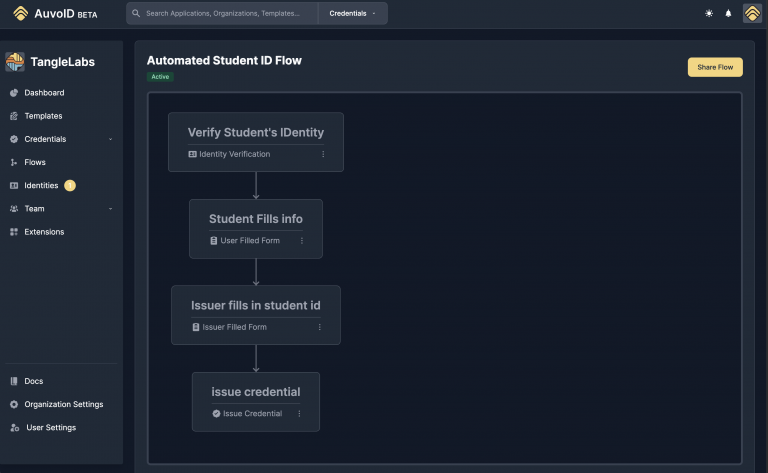
Flow Builder
The new flow builder allows organisations to create user journey flows that can support additional verification and authentication steps to create seamless experiences for the verification and issuance of identities and credentials of users.
User onboarding
Create streamlined onboarding flows that can allow users to easily interact with your organisation and services using multiple steps and checks to grant access to platforms and features
Data verification
Define clear data verification requirements to ensure users data and interactions are authentic
Authentication
Allow users to sign on and authenticate passwordless with login with DID or create presentation definitions that support credential based access and authentication
Document Issuance
Include requirement based credential issuance directly to users across all credential templates including data collection and verification processes necessary for your requirements
ID Verification
Integrate banking level KYC / AML identity verification processes within your flows to ensure robust compliance in user interactions
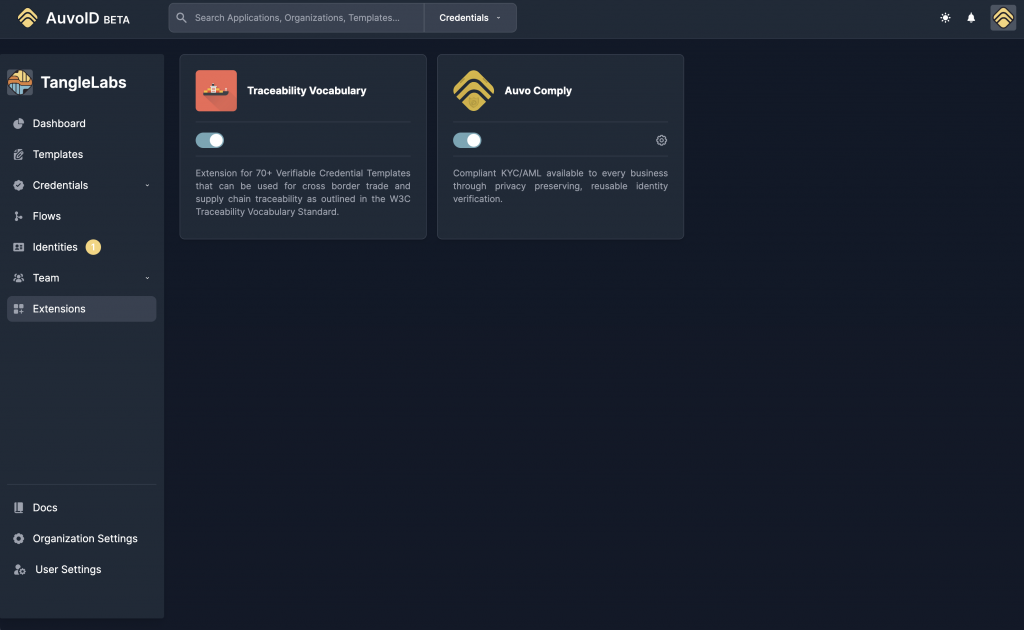
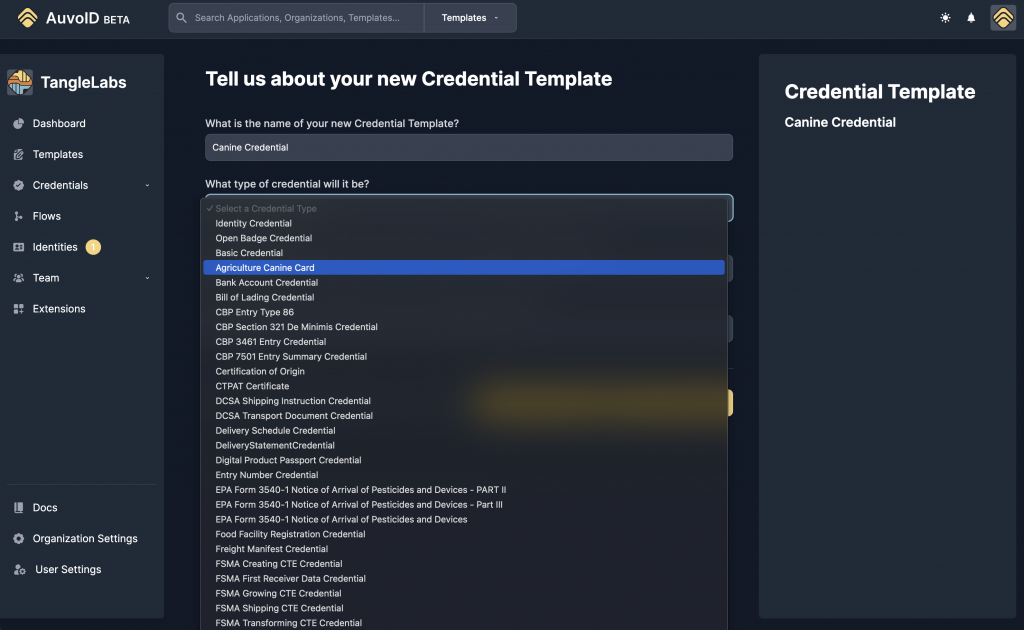
Extensions
The extensions feature has added a new modular marketplace system to the platform that allows organisations to make use of specific features and functionality across a number of different add-ons that support new interactions and use case specific features. With a fully integrated format, additional extensions will allow the platform to grow over time to support key required functionality and use case extensions as Auvo expands.
Reusable KYC
The popular reusable KYC feature Comply has been added as an integrated extension to the Auvo platform allowing compliant KYC to be included in user experiences built through the platform
Traceability Vocabulary
The W3C Traceability Vocabulary (pioneered by Transmute) extension now allows for the easy implementation of cross border trade documents into verifiable credential templates for reuse in cross-border applications for supply chain and trade
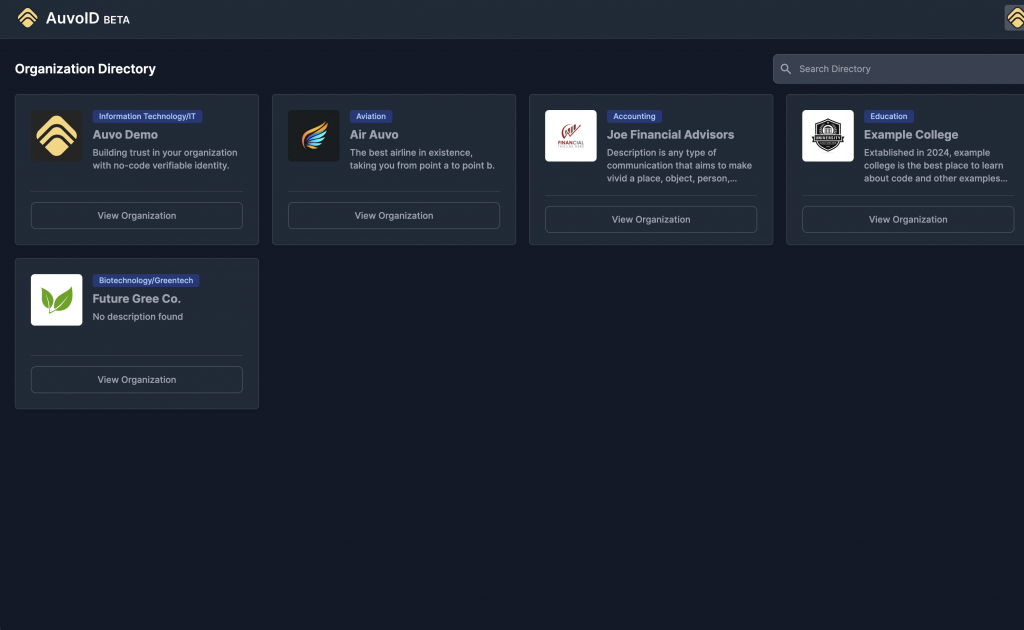
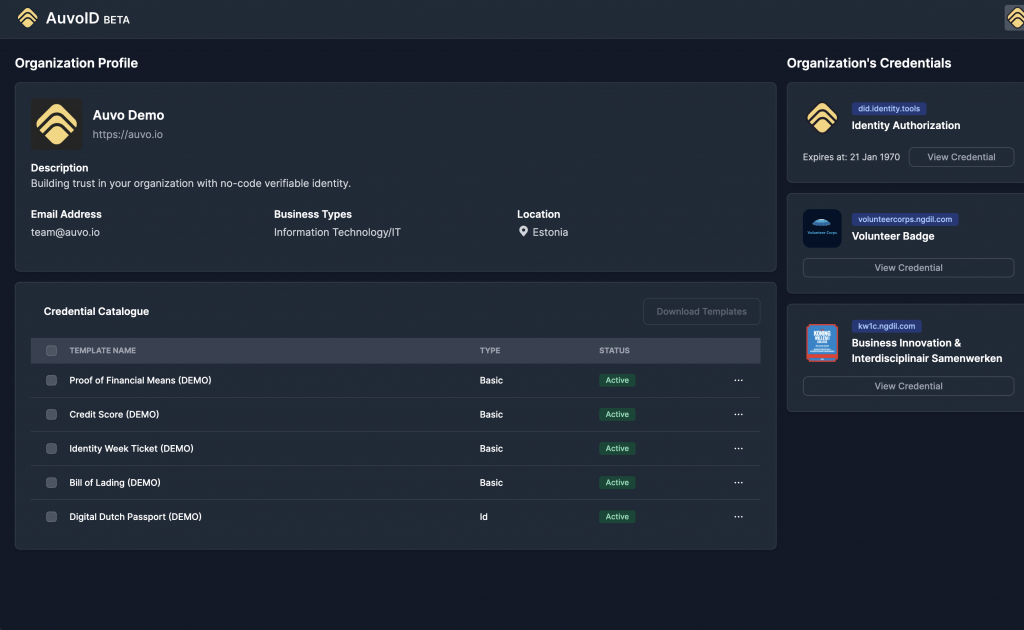
Organisation Directory
The organisation directory opens up some really powerful visibility and interoperability tools for organisations, creating a publicly accessible register of organisations, giving you the power to share credentials and other information about your organisation as well as defined schema and credential catalogs for public verification and registries.
Credential Catalogs
Organisation Credential Catalogs allow organisations to clearly define and share their credential templates with other users and entities, allowing defined schema to be reused across different platforms and experiences for verification and interoperability
Organisation Profiles
With organisation profiles, a visible public profile can be shared to allow external parties to learn, verify, and interact with your organisation through shared organisation credentials, such as a business license, or a business registry document, and defined credential catalogs – making interoperability and organisation verification easily defined processes
What’s next for Auvo?
As Auvo becomes more widely used across different industries such as education, supply chain, and healthcare, the platform will expand to support additional versatility and functionality that can make use cases even easier to manage and create. With an aim to launch a v1.0 release candidate by the end of 2024, we have some core features and functionality updates already lined up including:
- New extensions to include more vertical specific tools and resources, as well as more universal features such as document signing, custom forms, and email templating.
- Standards updates and expansion to support the latest in framework advancements to include selective disclosure, registry standards, ISO mDoc, and other interoperability profiles such as DIIP v.3
- Integration of more complex user flow tooling to support custom flow logic, drag and drop flow builder, and more intuitive user experience
- Internationalization and language support to make the platform more accessible throughout the European and international landscape

